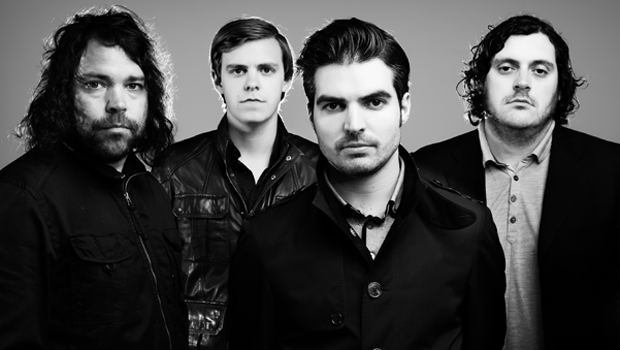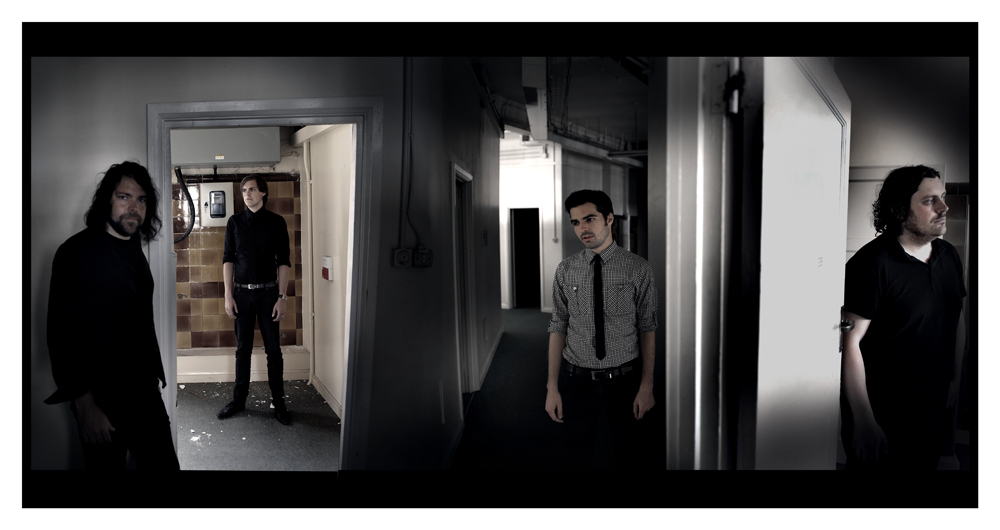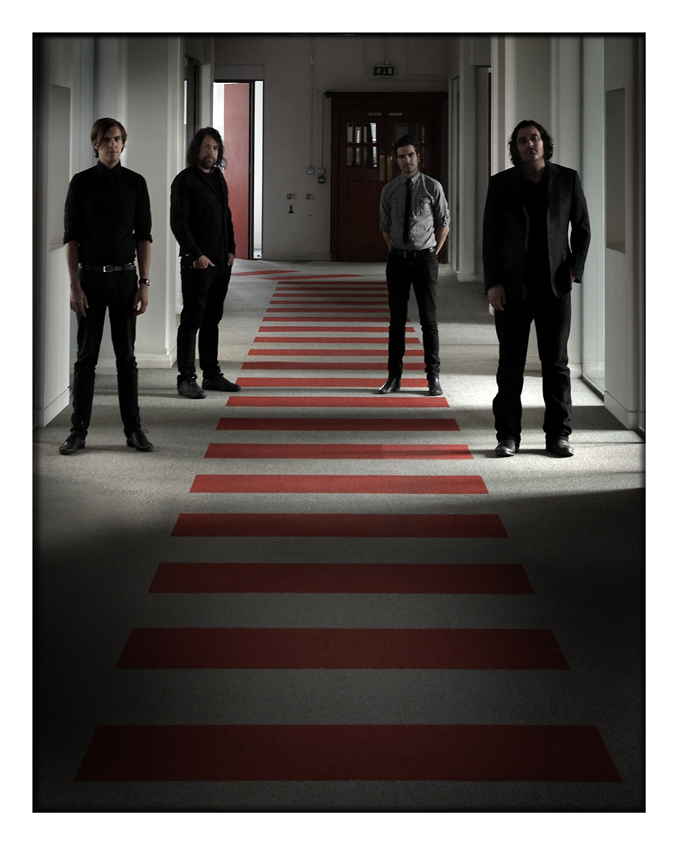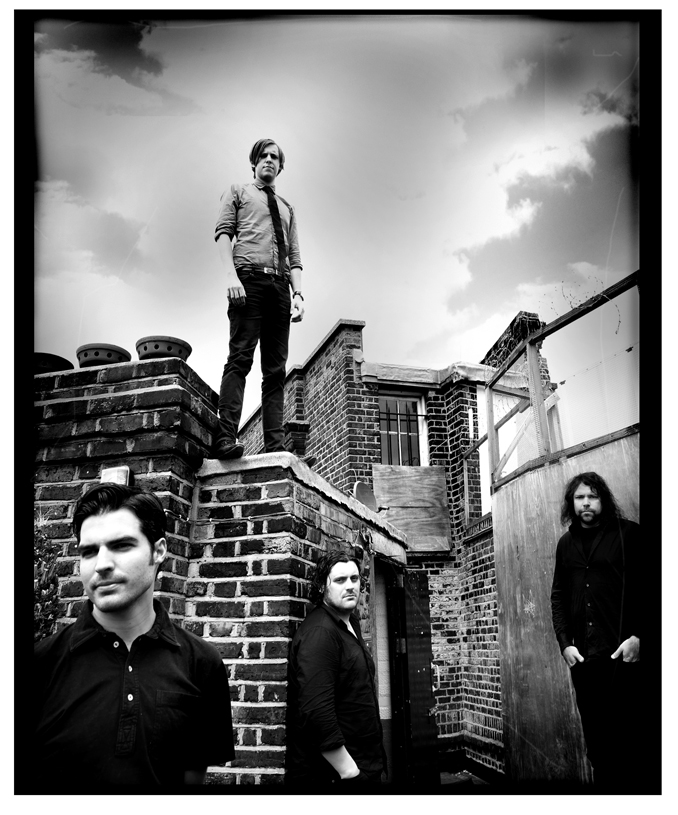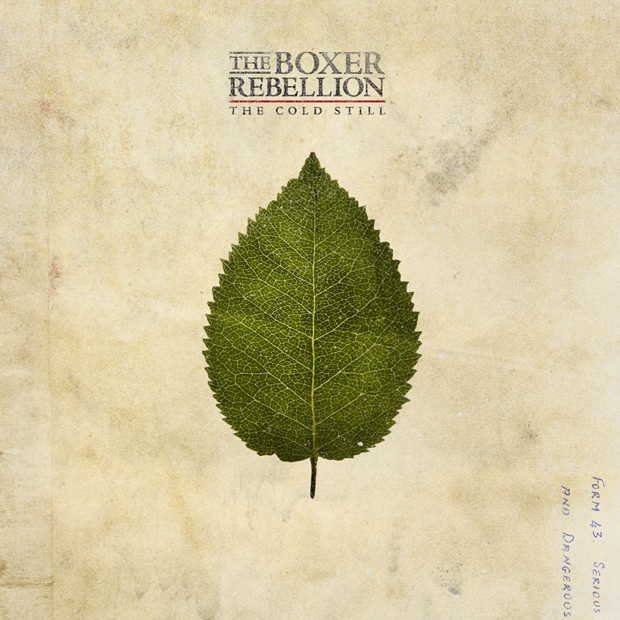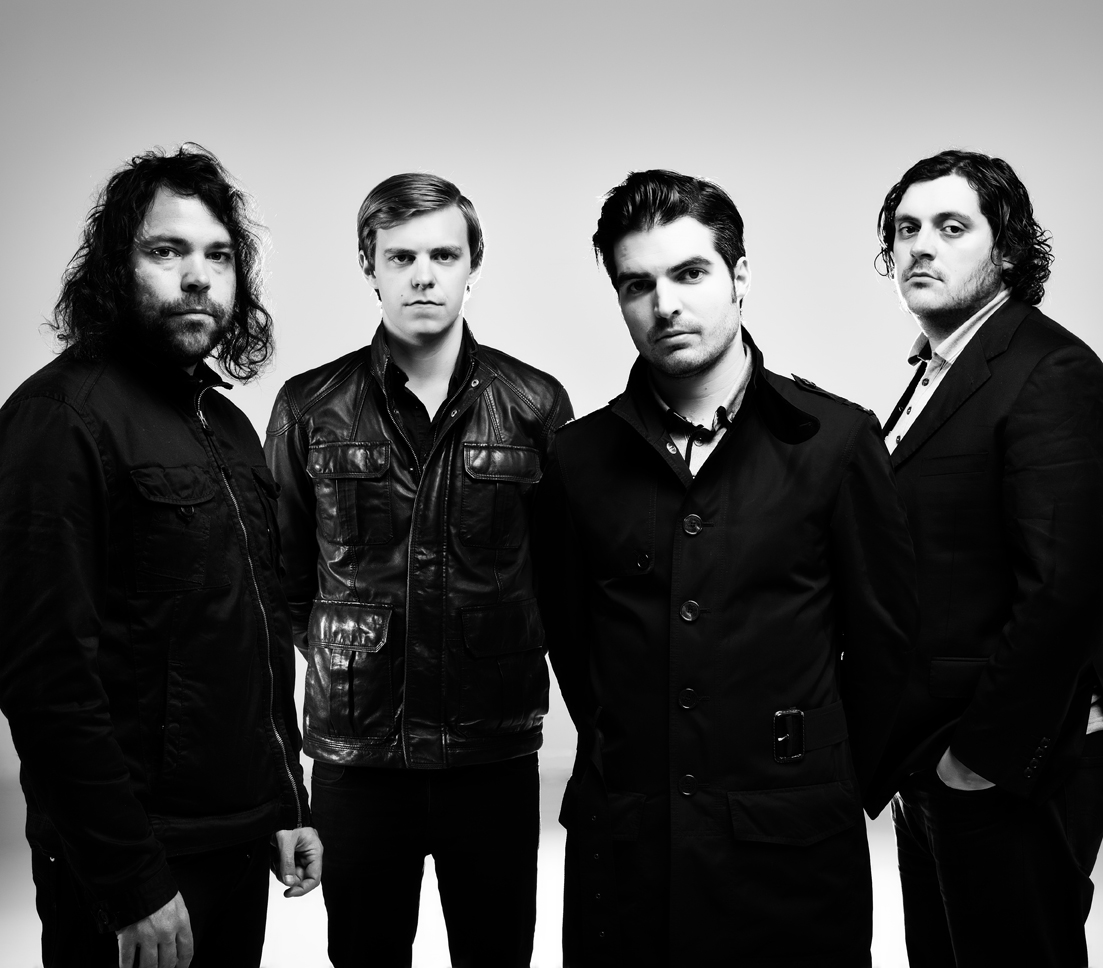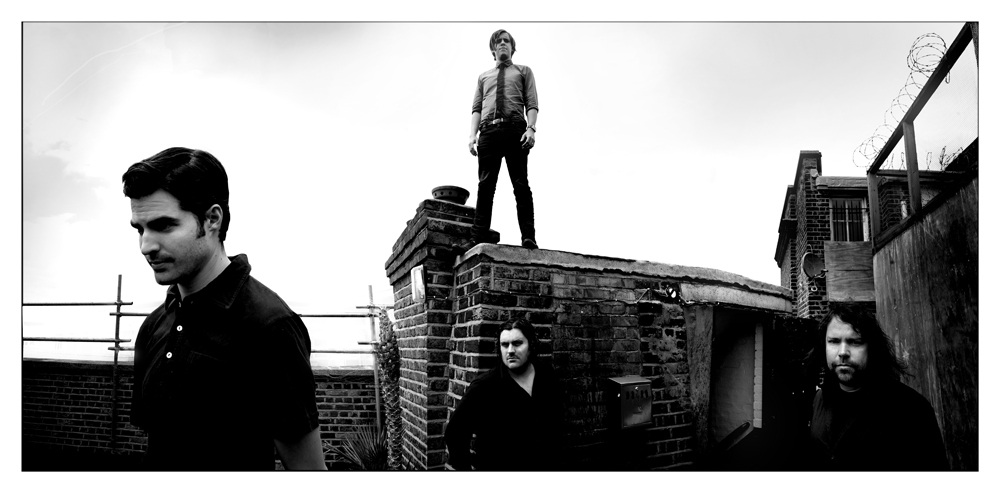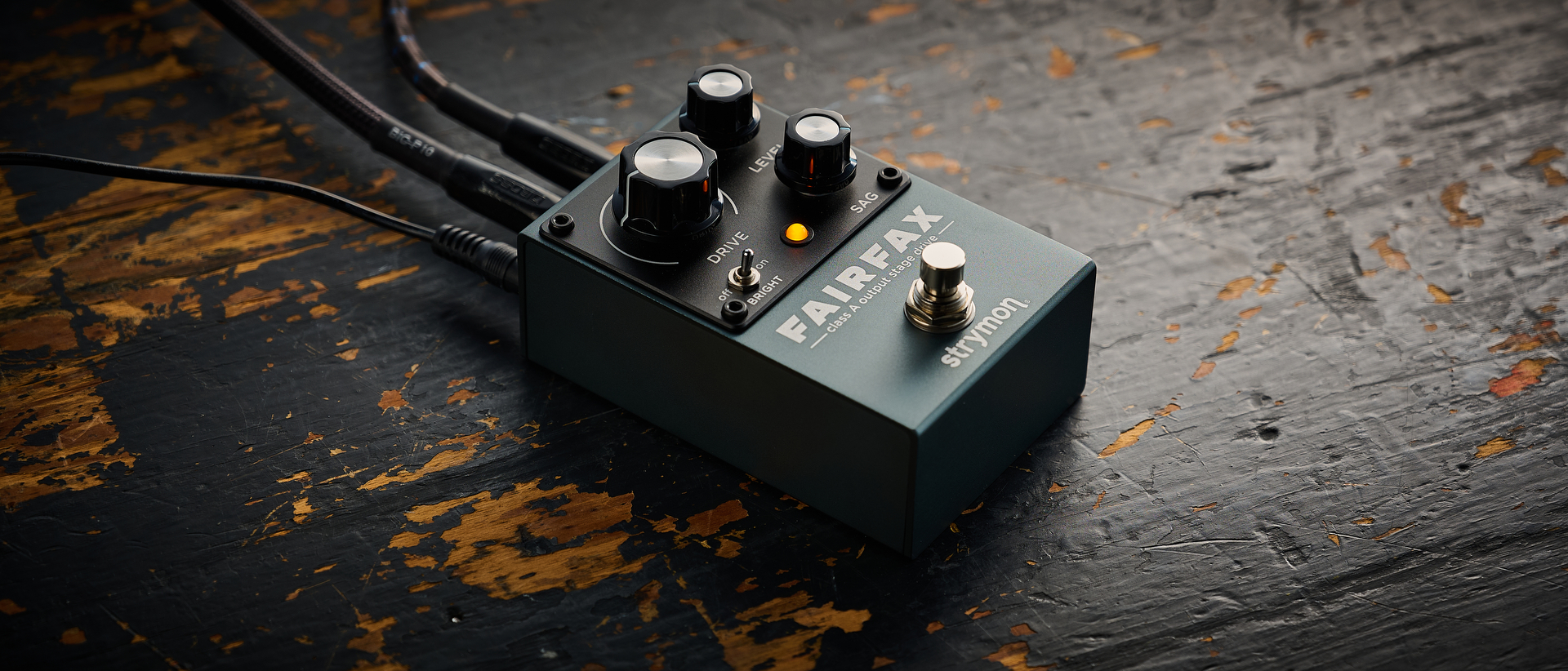Interview: Todd Howe of The Boxer Rebellion Discusses Their New Album, 'The Cold Still'
All the latest guitar news, interviews, lessons, reviews, deals and more, direct to your inbox!
You are now subscribed
Your newsletter sign-up was successful
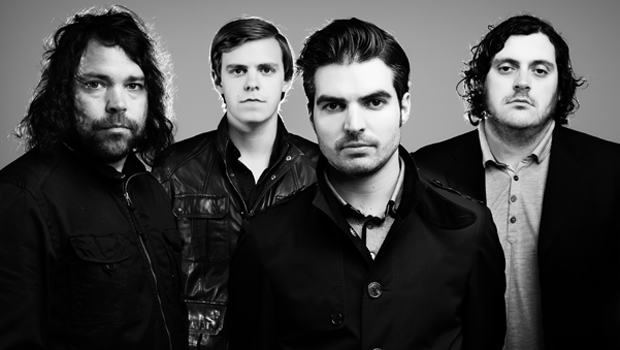
The Boxer Rebellion knows independence.
Over the last decade, the band’s four members, hailing from three different countries, have seen their prior label fold due to financial reasons, produced an album themselves that ended up changing the rules of the UK Billboard charts and recently completed the first leg of a US tour, complete with a promotional appearance on the Late Show with David Letterman for their newest studio album, The Cold Still.
The tumultuous journey is fitting for a band named after a Chinese uprising that sought independence from foreign influences, even if that name was found by the members of the band casually flipping through an encyclopedia.
This July, The Boxer Rebellion released their first live album, Live in Tennessee, recorded Oct. 12, 2010, in singer Nathan Nicholson’s hometown of Maryville, Tenn. They also announced the second leg of a North American tour, which spans 22 shows over 33 days in October and November and covers most of the US geographically.
The band is currently in London on a break. Guitar World caught up with lead guitarist Todd Howe about The Cold Still and the ride that he and the rest of The Boxer Rebellion have been on over the years.
The Runner from The Boxer Rebellion on Vimeo.
GUITAR WORLD: You’re starting a new tour, but you’ve had a couple months off in between. How has the break been?
All the latest guitar news, interviews, lessons, reviews, deals and more, direct to your inbox!
We’ve been taking some time now to write new stuff. It works for us. We tend to not write too much on the road.
You were on tour nearly nonstop from March to May right after The Cold Still was released. How was the promotion and the crowds?
It went really well. We’re actually about to announce another US tour, so that’s quite cool. The album was out and we scripted our touring in North America. The tour we did in North America in April was the first half and we tour them again in October and November. That’s the second half of the tour. The gigs are fantastic. We had two great sold-out shows in New York and one in Chicago. The one in L.A. was sold-out. We just get a really good vibe when we go to America, which is really cool. Will you be going to some of the same places in America with the new tour?We will be going to a number of the same cities, but we’ll be doing a lot more of the South this time around and Canada. We’re going to be doing Calgary and Vancouver and Toronto as well. We’ll also play San Diego, Salt Lake City and Denver then come across Tallahassee, Tennessee, Virginia and then back up to New York. It’s good. We’ve just got to keep coming back and keep playing more shows. But the crowds have really been responding a lot, which for us is a really good thing.THE BOXER REBELLION INTERVIEW: PAGE 2You’ve said before that you’re happier without a label. But do you ever feel now with so much to do that you could use someone to run things for you?Yeah, I guess it’s a bit of a downside to being independent that you do have to do everything yourself. I would love it if I, or if any of us, didn’t have to worry about the business side of things. It’s good to have that much control, don’t get me wrong. We’ve thought about this a lot that we may, particularly in America, need to become part of a bigger label to get them to push everything that’s going on out there. I think if that happens it would be a really natural progression for us.You’ve played at South at Southwest in Austin a couple years and participated in other festivals. How does the dynamic change playing at a festival versus being the only act in a show?Festivals are a little bit more fly-by-the-seat-of-your-pants, and I guess the good thing is that pretty much every single band, bar the headliners, you’ve got to be on stage, get it up and go. You never know what you’re going to get with a festival, so it’s a completely different sort of adrenaline rush because you can’t prepare for festival shows in the same way you prepare for other gigs. There’s no sound check so it instantly changes the dynamic. I think they’re both really fun for different reasons. I think we really just look forward to getting out on stage and just going for it.What was it like getting to play on Letterman, where it’s only one song, but such a huge audience?It was pretty nerve-wracking. I was nervous all day. We got there at 8 o’clock. I wanted to soak up the atmosphere. You do a sound check and then you come back later and do camera-blocking then rehearse your stuff a little bit more. But it all boils down to once they do the taping at 4:30 or 5 o’clock, they basically open the door and say, alright, you’re on, and then you’ve got to reset all your gear up and then just go for it. Five minutes later, it’s over. The show’s finished. When you’re out there, you didn’t really have any time to get nervous. You just went for it. At the time I was playing, I didn’t really think about the fact that there were enormous people that were going to be watching it. We packed up, I jumped in a cab after Letterman and I think that’s when it hit me, the significance of what we’d just achieved. It was a pretty huge thing, to be honest. Did the appearance on Letterman feel like a defining moment for the band?Letterman’s definitely up there as one of those defining moments. I’ll never forget, actually, being at a bar on Third Avenue watching it and everyone stood up and cheered. The vindication that we got from selling so many records with Union in the first week, that was really incredible, and Letterman’s right up there with that.Do you feel like you changed the music industry by releasing Union strictly on digital at first? Was that a conscious decision, or done for financial reasons?Yeah. It wasn’t a conscious decision at all. At the time, we couldn’t afford to print physical copies. That was a whole make-or-break thing for us, pretty much. If we hadn’t sold any records that week, then it would have been very lean picking for us. But I think we always worked on the premise that we had an audience. That whole week that iTunes had the song Evacuate up as "single of the week" and was promoting it, we sold a lot of records and could make the decision to remain independent. Do you credit the audience you had built up with the first album and the touring you did afterwards?Yeah, definitely, we always stay close to our fans. We work very, very hard on social networks and stuff like that to build our fan base to get us to that moment. You know, once we have a fan, we very rarely lose them. They’re very loyal. I think it’s indicative of the type of music that we make. I think our fans, once they’re into it, they’re into it and they tend to really get it. I think they really want us to break through in a big way. They were really influential in helping us change the rules with chart positioning in the US because Union in the first week was 82 on the Billboard 200 just on digital, but in the UK we weren’t allowed to go on the chart because they didn’t have digital-only release as eligible. I think a lot of our fans actually petitioned and emailed the official chart company here and they eventually changed the rules.On The Cold Still, a lot of the songs come in with your guitar and the drums as the only two instruments at first before adding others. How is the music led by instrument?Especially with The Cold Still, it was very much the four of us creating everything together. It was very much from the angle of ideas that we’d just be messing around with and something would just click and we’d go with it. There were never really any real preconceptions brought into the rehearsal room for that particular record. I think it’s just the way it worked. It feels a lot more organic. Union was very much a lot of ideas that were brought in from the outside and then we’d all collaborate or just rearrange them in a lot of ways.Would you say that this album is more the group coming together musically then?I think so. It’s definitely a lot more musical synergy on this record. We recorded it all in the same room, facing each other, recording everything live, so it was a lot more organic. I don’t think it can be any more organic than that and I think we’re all really proud of that, you know. It sounds like a band in a room.THE BOXER REBELLION INTERVIEW: PAGE 3Do you give some of that credit to your producer, Ethan Johns?Yeah, I think that’s why we went to him. We did some demos of the new stuff and it sort of sonically fell short and we wanted someone to bring the songs out more. Ethan was the only person on our list pretty much. It fit. It definitely really worked with his style of working. Once we all made the decision that we were going to work together, we just went with the flow and made sure that we didn’t second-guess too much. I think the album really benefited from that. He definitely was a real integral part into making that record.In the song "Cause for Alarm," the guitar solo comes in about two minutes in and it has a lot of sustained notes that sort of feel as though they’re rising from the background. What effect did you use to create that sound?The actual pedal chain that I use, I have the Marshall Bluesbreaker on the boost setting. That’s the first pedal. And then I use a CL4 on a tape echo setting and then I run that through the Boss DD-3 on the 800 setting. I find with the two delays that it really gives it this orchestral sound. The melody gives it this whole spread. I think it’s something that I just came across by accident.Using that much equipment to create one sound, do you think’s it more important as a guitarist to have wonderful technical ability with the instrument or to be very good technically with the effects and the different sort of things you can do with sound outside of playing it?I don’t know. I think first and foremost my idea of a good guitar player doesn’t really have anything to do with technical ability. I think it’s whatever compliments the song. My favorite guitar players, one is Frank Zappa and the only guitarist from recent times I’ve really got into is Nels Cline from Wilco. To me, he’s very similar to Zappa. There’s no real visible structure, but it’s very melodic. I much prefer melodic guitar styles and stuff that sounds a lot more organic and visceral than conventional blues guitar playing or anything like that. I have a real aversion to blues guitarists, to be honest. I love the great, well, some that are considered great. I think I just get excited by different things. You’re never going to see me playing a specific guitar style.Have you found a specific guitar that you usually use to create your sound?I use a couple of different guitars. My main guitar is actually a custom-made guitar that was built by our guitar techs. He filled it with custom pickups, they’re called pickupwizard pickups from the UK. They’re custom made pick-ups and there’s a Tele and a Les Paul pickup in my guitar. I’m really digging that at the minute. But, before that I used to use a standard Tele with a Seymour Duncan pickup. An Epiphone Casino is my other guitar of choice.Overall, what kind of feeling do you think that the band is trying to convey through the music?I guess our first few albums, I don’t know about the message, but we tried to make cinematic music that transforms people somewhere else when they listen. It’s an all-encompassing wall of sound that helps people escape sort of from what they are and what they’re dealing in at any point in time. The most recent album, I think a lot more, it went from the first few albums being more escapist to something very introspective with a lot more space in it. I think you can notice a difference between this album and the last one. It took on a whole different vibe. The elements are still definitely there. We still tend to write widescreen cinematic music which people can sing along to. One last question: Was someone a big fan of history, or was The Boxer Rebellion found through research?It was really simply a case of we found a name that was cool. We have a history encyclopedia and we were looking for names and we got all the way through A and halfway through B and fell on The Boxer Rebellion. It’s quite interesting because we had a guy come up to us in Toronto and he said he’d driven nine hours to come and see us and he’d just started a band and he wanted to call them The Boxer Rebellion and he’d looked to see if the websites were all taken and discovered us. And he was a huge fan. It’s actually quite funny.The Boxer Rebellion Tour Dates:OCTOBER
17 - Edmonton, AB - Starlite Room *
18 - Calgary, AB - Republik *
20 - Vancouver, BC - Venue *
21 - Seattle, WA - The Crocodile (City Arts Festival)*
22 - Portland, OR - Doug Fir *
25 - San Francisco, CA - Great American Music Hall *
28 - Los Angeles, CA - El Rey Theater *
29 - San Diego, CA - Casbah *NOVEMBER
01 - Salt Lake City, UT - Kilby Court *
02 - Denver, CO - Bluebird Theater *
04 - Austin, TX - Auditorium Shores (Fun Fun Fun Festival)
05 - Dallas, TX - Club Dada *
06 - Houston, TX - Fitzgerald's Downstairs *
08 - Tallahassee, FL - Florida State University Club Downunder *
10 - Knoxville, TN - Square Room *
11 - Atlanta, GA - Vinyl *
12 - Charlotte, NC - Visulite Theatre *
13 - Charlottesville, VA - The Southern Cafe and Music Hall *
16 - Baltimore, MD - Ottobar *
17 - Philadelphia, PA - World Cafe Live Downstairs *
18 - New York, NY - Webster Hall *
19 - Toronto, ON - Opera House ** = w/ support from Canon Blue
